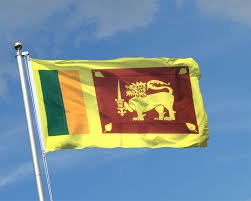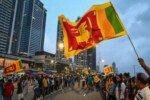Colombo, Oct 5 (PTI) Sri Lanka has reached a debt restructuring agreement with its sovereign bondholders, the government has said, marking a crucial step towards the cash-strapped island nation’s economic recovery and strengthening.
In a statement on Friday, the Ministry of Finance said following the Agreement in Principle (AIP) reached with representatives of its international and local holders of International Sovereign Bonds (ISB) on September 19, the Sri Lankan authorities have “now completed their consultations” with the country’s “Official Creditor Committee (OCC) and the IMF (International Monetary Fund)”.
The statement from the Treasury department further said the OCC has confirmed that the terms of the AIP comply with both Comparability of Treatment (CoT) principle and the global lender has also confirmed that the the terms of the agreement meet the IMF-supported programme.
The development came as the new National People’s Power (NPP) government led by President Anura Kumara Dissanayake gave its nod to accept the agreement during the talks held earlier this week with the visiting IMF delegation here in Colombo.
According to the statement, following the presidential elections on September 21 and the installation of a new government on September 25, the Sri Lankan authorities reiterated their commitment to the debt restructuring plan. The new administration has endorsed the programme’s debt targets and the AIP terms, with a focus on expediting the restructuring of ISBs in accordance with the agreed terms.
The President’s economic and finance advisor Prof A J Fernando said the primary objective of the delegation’s three-day visit from October 2 to 4 was to “initiate discussions on the progress of the IMF Programme and necessary steps towards the release of the fourth tranche of the USD 2.9 billion Extended Fund Facility (EFF)”.
The IMF made external debt restructuring conditional to the USD 2.9 billion four-year facility clinched in March 2023 by then Ranil Wickremesinghe administration. Sri Lanka has already obtained three tranches of about USD 360 million each under the EFF. The third tranche of the bailout package was released in mid-June as the Washington-headquartered global lender said on August 2 that Sri Lanka’s economic reform programme had yielded good results.
During the talks with IMF, Dissanayake reiterated Sri Lanka’s position that some of its rigid conditions must be watered down to grant relief to the public, while maintaining that the government would stay committed to the lender’s USD 2.9 billion facility.
After the meeting, the IMF said in a statement that the two sides agreed on the “importance of continuing to safeguard and build on the hard-won gains” that contributed to the country’s economic recovery.
Asserting that it was “encouraged” by Sri Lanka’s commitment to continue the reform efforts, the IMF said it remains a “steadfast partner” in supporting and assisting the country achieve its economic reform goals.
“The IMF team will continue its close engagement with Sri Lanka’s economic team to set a date for the third review of the IMF-supported programme,” the statement said.
Days before the presidential elections, the then Wickremesinghe-led government, which undertook the laborious task of debt restructuring, announced an in-principle agreement with external commercial creditors for the restructuring of approximately USD 17.5 billion of external commercial debts.
Wickremesinghe, who was also the finance minister, was defeated in the presidential election last month.
The NPP, in the run-up to the election, had called the IMF deal a “death trap” and vowed to renegotiate it.
In April 2022, Sri Lanka declared its first-ever sovereign default since gaining Independence from Britain in 1948. The unprecedented financial crisis led Wickremesinghe’s predecessor Gotabaya Rajapaksa to quit office in 2022 amid civil unrest. PTI CORR GRS SCY
GRS












